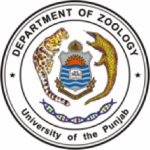Biosurfactants are surface active naturally occurring compounds which are produced by microorganisms that have several applications in petroleum, pharmaceutical and agricultural industries. Produced water is a major waste water stream of petroleum industry which is produced during petroleum extraction from subsurface in which hydrocarbons are found as a main environmental pollutant. Present study is focused on production of biosurfactants from indigenous bacteria, isolated from produced water and produced water contaminated soil samples collected from three selected sites of Eastern Potwar, Punjab, Pakistan. Forty seven bacteria were isolated out of which five (F1, F3, F20, F23 and C16) were selected on the basis of high optical densities of 0.7, 70% oil and grease reduction potential and maximum CFU/ml of ≥3 ×106. The weights in g/l of biosurfactants produced from F1, F3, F20, F23 and C16 were 0.52, 0.93, 1.58, 0.52 and 1.56 respectively. F20 showed maximum biosurfactant production of 1.58 g/l. F1, F3, F20, F23 and C16 showed emulsification (%) of 6.00, 6.33, 6.66, 6.00 and 6.33 and Rf-values of, 0.6, 0.61, 0.6, 0.64 and, 0.61 respectively. The GenBank accession numbers obtained for F1, F3, F20, F23 and C16 were MH424576, MH161599, MH424577, MH424578 and MH424579 respectively.








